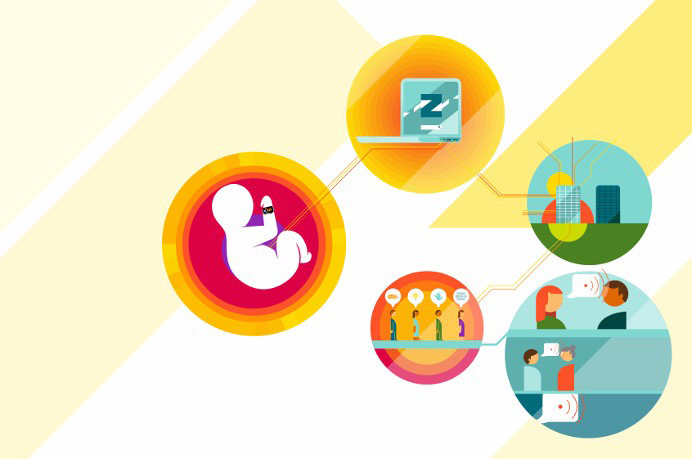Generation Z is about to revolutionize how companies think about hiring and employee retention. Here’s how your organization can embrace a new approach to talent.
In just a few years, the older members of the Generation Z cohort will begin to enter the workforce. These youngsters were born in the new millennium and weren’t around for 9/11 or its attendant cultural touchstones. They grew up in a radically transformed world, and they do things differently.
Employers, many built to reflect the needs and motivations of the Baby Boomers or Generation X, have quite a challenge on their hands. No longer do youngsters expect – or even want – a job for life. So sophisticated are their social and professional networks, they are able to screen every organization on the planet through digital conversation. Glassdoor, Facebook and Twitter mean there is no place to hide for businesses that haven’t tuned their HR practices into the hopes and dreams of the next cohort of skilled labour. The war for talent is over – the talent won.
Duke Corporate Education South Africa ran a roundtable with chief learning officers to explore the potential impacts of Generation Z’s entry into the workplace. The findings were instructive: the overall verdict was that few of the drivers so relied upon by employers for previous generations of employees are likely to be effective in the coming age. Five key themes stood out…
Theme #1
Talent is fleeting, attract it
This generation no longer wants a lifetime contract in its careers. Because of this, organizations need to make a mindset shift. Companies once had tremendous power over employees – they no longer have that control. People with in-demand skills are now flooded with targeted job opportunities online, and as soon as they see a new opportunity they move on. Organizations will have to recognize the need to work together to improve skills levels in whole economies – so that fluid pool of labour is both bigger and stronger. You won’t hold on to Homelanders, so make certain you have a ready reserve of replacements. People are not going to stay, get used to it, and prepare for it. Organizations will have to rethink their recruiting practices to attract Generation Z, and now is the time to start.
Theme #2
Learning is agile, embrace it
Generation Z will find out what they need to find out. They know what they want to know. Whereas the generation before them – Generation Y – were, to some extent, dreamers on the crest of a technological wave, Homelanders are more realistic, pragmatic and practical. Many of them have seen their Generation X parents lose their jobs and homes in the global financial crisis and they don’t want to repeat the misery. So they are keen on advancement and rapid, agile learning to protect themselves. These new workers are very good at teaching themselves the key things they need to know very quickly, by searching for the answers efficiently online. Old company courses won’t cut it – your training should be experiential and practical, not theoretical. Homelanders can find the theory they need quicker than you can teach it.
Theme #3
Networking is powerful, anticipate it
There has been a tremendous transference of power. The next generation has access to an increased number of professional networks and is able to understand what is out there and to share information about companies like never before. is means that if your company is a great place to work, they will find out about it. But if there is no value proposition to your company why would they come? Employees are much less likely to take a chance on companies than they once were. Employers need to ensure they have impeccable – and widely known – credentials.
Theme #4
Labour is entrepreneurial, harness it
With the next generation of labour so footloose and fluid, you need to make sure great people deliver lasting results before they leave. Organizations should cultivate a culture of internal entrepreneurialism. Assign great people to lead innovation work, so that fantastic new products will be their legacy. Or hand logical thinkers the reins to reinvent your processes – so you benefit from more efficient systems long after they have moved on.
Theme #5
Cultures are changing, accept it
You need to provide opportunities for employee growth, rather than focusing so much on salaries. Workplace cultures are important – flexibility, as now, is key, but so is the opportunity to be involved. The guiding principle of organizations should be to talk with the new generation, not about them. Hear what they say, identify what drives them.
An adapted version of this article appeared on the Dialogue Review website.




